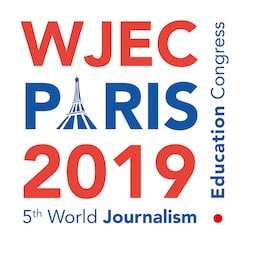WJEC 2019 – Paper Sessions Guidelines
- What is a paper session?
- A paper session will have 4 or 5 paper presentations that focus on a common research topic (as far as possible).
- Presenters will have 10/11 minutes to present their work. This will be followed by a short discussion period (4/5 minutes each).
- All paper sessions will have a moderator. The moderator will coordinate the session and act as a vigilant “timekeeper”.
- There are three time slots dedicated to Paper Sessions, one on Tuesday 9th, two on Wednesday 10th. We encourage you to have a look at the provisional agenda available on the WJEC website (www.wjec.paris).
- Presentation Specifications
- We recommend colleagues to arrive 20 minutes in advance in the room, to be able to check the technical details and install their presentation. If you want to use your own laptop, please travel with any adaptor needed (power & HDMI adaptor). Room will be equipped with computers, mostly iMacs.
- For system compatibility, we strongly recommend the use of a pdf format.
- Remember to create your presentation using a 16:9 ratio. Presentations using a 4:3 ratio will be played as is.
- If you are using any audio or video content, we suggest downloading and/or embedding this into your presentation when putting it together. You will not be able to use links to sites such as YouTube, Vimeo etc., as we cannot control any security (firewall) and advertising, lag or playback errors that can occur. We also suggest you download any website content prior to your Dauphine arrival, as, due to copyright and/or Dauphine policies, some sites may be blocked while using University computers.
- We suggest you bring an electronic, up-to-date copy of your presentation on a USB drive, and if possible, with a connection to an external cloud-type storage service, such as Dropbox as a backup.
- Please keep the content of your slides to main points only and ensure that any diagrams or charts are easy to follow.
- All presentations will be deleted post-event. Copies of presentations can be requested directly from the authors.
- And lastly, please remember to cite all sources of imagery, audio or references used in your presentation.
Instructions for Moderators
Please arrive 10 minutes before your session starts. You will find the folder of materials prepared for you. The folder contains the cards you will flash the presenters to tell them how much time they have remaining. Be sure to sit where the presenter can see you front and center, so you will be sure to catch their eye. You may also wish to remind speakers that you have these cards. Calibrate whatever time piece you are using with a cellphone/smartphone.
Please ask your presenters (there should be four or five presenters max by session) beforehand to find out how they would like to be introduced (e.g., title, full name, etc…). Ensure you are comfortable pronouncing their names. Keep your introduction to each speaker very short. We are on a very tight timeline. No speaker introduction should extend past 10/15 seconds. Participants can read more about each speaker in the congress App.
We are asking that the presenters upload their talks to the hard drive of the presentation computer. You can access presentations here as well. Please ensure that all talks in your session have been uploaded before your session begins and ensure they are running properly. All talks should be uploaded during the break before the session.
The other (extremely) important role that you will serve is to keep your session on schedule. No presentation should be allowed to run past its time limit of 11/12 minutes. Please check the agenda to see how long each talk should be because they vary. Ensure you allow a maximum of 5 minutes for questions. If time permits, you can have a general round of questions at the end of session.
The purpose of the panel discussion is to allow longer blocks of question time. Panel moderators should plan to have a stock of questions for discussion, should the question period run slow (i.e., should there be too few questions). Moderators are encouraged to contact the speakers in their session in advance and determine if there are any questions the speaker would like the audience to ask. These can be used as stock questions.
The final role of the moderator is to manage questions from audience. The moderator must acknowledge participants with questions and 1) ensure participants are allowed to ask questions in the order they put up their hands, 2) facilitate questioning so that there is time for multiple individuals to ask questions or keep questioning on track with the session topics, 3) ensure that questioning is respectful and disengage the dialogue from disrespectful questioning, and 4) keep questioning to a designated time limit so that the session remains on schedule. Where there is not enough time for participants to discuss their questions, encourage them to hold their questions for the panel discussions or to have a discussion with speakers during the break.
